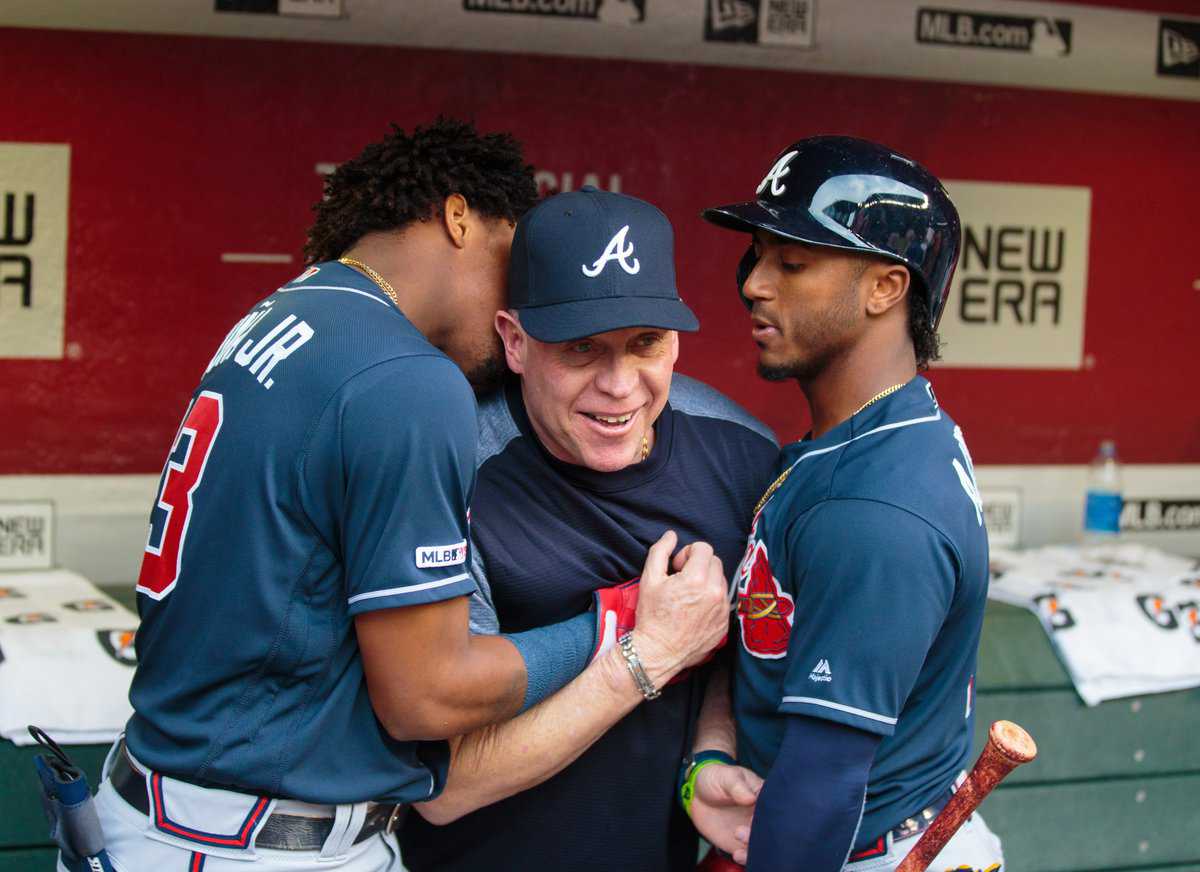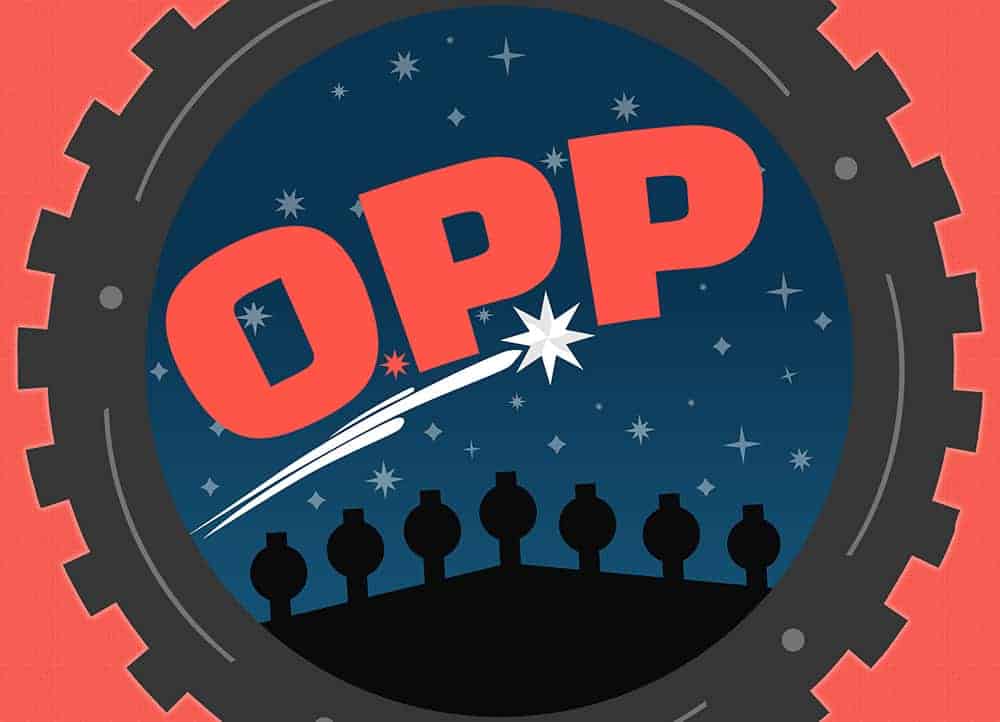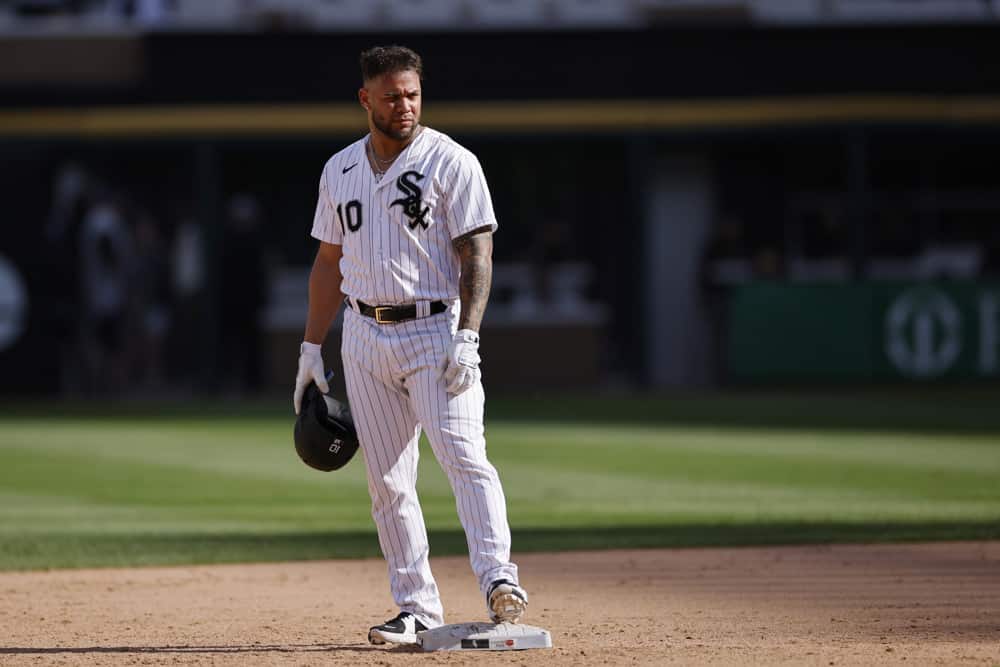Can you name all of the White Sox's assistant hitting coaches since the team created the position after the 2012 season?
In order to give you time to work up the list before inadvertently glancing at spoilers, the names are below this picture of Chief.

Hi, Chief.
The answers:
- Harold Baines
- Greg Sparks
- Scott Coolbaugh
- Howie Clark
Outside of Sparks having a specific dugout celebration with José Abreu, none of them made a lasting impression. That's probably the way the job is designed, because most assistant [whatever position] in [whatever field] don't have notably different messages from their superiors. That's why they're assistants. The hitting coach gets the bulk of the praise and the blame, and with the White Sox, it's mostly blame.
Think about how little we gleaned about White Sox assistant hitting coaches despite spending every day with them, and try to apply that to another team's hitting coach. That makes it a little difficult to ascertain what kind of hitting coach the White Sox recently hired.
I'd been poking at José Castro, and there isn't a whole lot on him. Whenever he's been mentioned in Atlanta Braves stories, he's referenced in conjunction with Kevin Seitzer, whether it's a modest hitting talent like Tyler Flowers ...
“The leg kick was just part of it,” he said. “Getting around Seitzy and Nachy (Castro) was huge for me, to just develop an approach, a plan. A lot of people go up there with what they think a plan is – and some guys can do it, they can just go up there (thinking), hit a slider – but for me there’s a difference in going up there looking for a slider and knowing what I want to try to do with it. I want to try and hit it off the center field wall – like, that changes everything versus just trying to hit it. That’s a big part of the whole picture. The leg kick just allowed me to black and white, clear-cut define a timing point. You know, where do I need to get to in order to get there and have time to hit 95, 97 (mph fastballs).
... or a budding prodigy in Ronald Acuña Jr.
Because Acuña used that stance while putting up impressive statistics in spring training and right after being called up, Seitzer and assistant hitting coach Jose Castro didn’t ask him to make wholesale changes initially. And when they did start to make adjustments, the coaches made sure that Acuña understood the reasoning and was comfortable each step of the way.
We know far more about new assistant hitting coach Chris Johnson because he was the point man for all hitters passing through Charlotte the last two seasons. We know more about new field coordinator Mike Tosar because he had ground-breaking success stories in Kansas City with Jorge Soler and Salvador Perez, and a close association with Pedro Grifol that had him going to Chicago as the presumed hitting coach.
Castro's story is much harder to parse. Even in a lengthy Miami Herald feature from last week that involves Castro as part of Grifol's Cuban-heavy, Miami-based White Sox coaching staff, Tosar is second on the call sheet, and when it gets around to Castro, there isn't a whole lot of detail about his approach.
Castro, for example, had his number “9” retired at Jackson High, skipping college ball to sign with the Phillies as a 27th-round draft pick. He finally made it to the majors in 2008 – as an interim hitting coach for Seattle. He returned to the majors as an assistant with the Cubs in 2014 and for the past eight years served on the Braves’ staff, winning a World Series ring with Atlanta in 2021.
“Relentless,” Castro said of his coaching career. “I keep fighting.”
In 2008, Grifol was Seattle’s director of player development, and that’s where he first started working with Castro.
“The White Sox hired the right guy,” Castro said of Grifol. “He’s very smart and detailed – a hard worker. He gets the best out of players.”
This morning, I was toying around with the information above, trying to determine whether "We still don't know a whole lot about José Castro" was worth an entire post when, for the second time in as many weeks, James Fegan published an article that complemented an idea I had.
He put Castro front and center in an article about the White Sox's new hitting infrastructure, where there's finally some specific substance to how he goes about his business.
“It’s going to be more numbers detail when it comes to (pitch) movement,” said Castro. “I’m sure some guys will be really quick to it, and some not. We’ve just got to help them out. That’s what we’re here for.”
That doesn't sound like a lot, but it would mark a shift in the way the White Sox lineup has prepared itself, if you can call it that. Fegan mentioned Sox hitters who "have discussed coming up in the game just knowing what the opposing pitcher throws and how hard, and making their in-game adjustments from there." I also thought of Leury García standing out for looking up YouTube videos of pitchers, and José Abreu buying Eloy Jiménez a tablet.
Johnson adds his input about what kind of information they're looking to relay to hitters -- how to respond to above-average fastball rise, for instance -- and it all sounds good. Of course, everything hitting coaches say before results season sounds good. Things usually start to go south when they have to spin disappointing performances in hopes of providing positive reinforcement, and they may never be able to take back those words. (See: Frank Menechino on Andrew Vaughn.)
If there's a specific issue beyond the general limits of the hitting coach article genre, it sounds like Castro, Johnson and Tosar are tasked with making up several years of progress in one offseason. That explains why they're up to 2½ hitting coaches, because two couldn't cut it.
There was one Castro-specific item I came across when looking up articles from his Atlanta days, but the player wasn't one of the franchise's many, many success stories. Then again, Hector Olivera wasn't anybody's triumph.
The Braves had acquired Olivera from the Dodgers in a massive, salary-shifting three-team deal in 2015, and Olivera had some of the deadest money on the books. He received a six-year, $62.5 million contract from the Dodgers, but only ended up playing 30 games over two years because he signed after the veteran Cuban bubble had burst. The days of ready-made stars like José Abreu, Yasiel Puig and Yoenis Céspedes arriving on steals of deals were long gone, but guys like Olivera, Yasmany Tomas and Rusney Castillo were able to cash in before their lack of traction bore that out.
Anyway, since the Braves lost 97 games in 2015 and would lose another 93 in 2016, Olivera's novelty produced a few stories during this lost time, and Castro was at the center of them because of his shared heritage. Castro was also born and Cuba and lived in Miami, and he was at the center of the Braves' efforts to make something out of nothing.
Castro, who worked with Olivera several times near his home in Miami before he went to winter ball, said the player is onboard with the changes in his swing and understands why they are necessary if he’s to reach his potential in the big leagues.
“He wants to do the things we’ve talked to him about because of the quality of pitching and the velocity (in the majors),” Castro said. “I asked him this question, and I knew what the answer was going to be. I asked him about the Cuban pitchers — man, those hard throwers. (Castro smiled.) He said, well, if we have a hard thrower, they’re on the way here (to majors).
“You see a lot of guys (in Cuba) with a lot of off-speed stuff, so hitters can get away with some things when it’s that type of pitching. Here in the United States of America, we have the best players, the best arms throwing at you every day. And it’s not just one or two guys, it’s the whole staff coming at you. They’re bringing the noise at you.”
This is only worth referencing because Miami seems to be where the White Sox's early offseason work is going down. Fegan again:
Field coordinator Mike Tosar’s role gives the new White Sox staff more cooks in the offensive kitchen than ever in the history of the franchise. But the basis for what this can immediately offer — why a partnership could work between Grifol’s recent Royals colleague in Tosar, a hitting coach coming over from eight years of success in Atlanta in Castro and an internal promotion in Johnson who offers experience with the current roster and organization — is that it already is in a smaller capacity. All three men live close enough to each other in Florida that Oscar Colás and Romy Gonzalez’s thrice-weekly visits to Tosar’s house in Miami for cage sessions so far this offseason have provided a forum for the coaches to share drills, acclimate to communication styles, and of course look at two unproven players vying for starting roles when camp starts in less than two months.
That might be a little more emphasis on Romy Gonzalez than anybody cares to see -- listen to Josh on the latest Sox Machine podcast for details -- and he might end up being as forgettable as Olivera in a few years. But I'm intrigued by the idea of the White Sox concentrating all of their hitting brains in Miami during the franchise's first winter without José Abreu in a decade. They haven't replaced Abreu on paper, but it seems like they're doing all they can to compensate for a void in leadership.
Todd Steverson's hitting minicamps once offered promise, so if you're not buying what Florida Men are selling, you'd have your reasons. It also wouldn't be unfair to Castro and Co., because most skepticism reflects the inherent issues with discussing hitting coaches. The fact that they are different hitting coaches is sufficient for now, and if failure still follows, at least the White Sox can embark on the gruesome work of making variables of what they'd hoped were constants.





